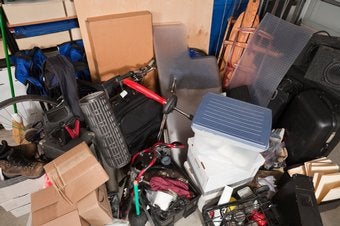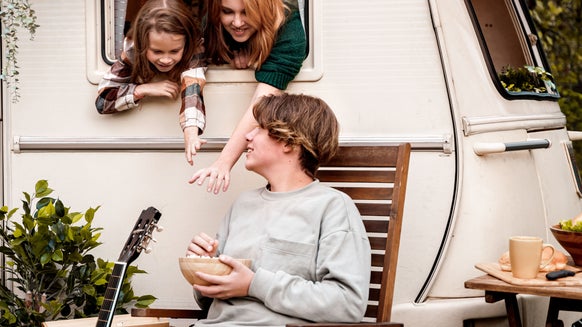Get Control of Your Clutter


Back in the late 19th Century, William Morris - the well-known English textile designer - famously said, “If you want a golden rule that will fit everything, this is it: Have nothing in your houses that you do not know to be useful or believe to be beautiful.”
A sentiment which applies just as much today as it did back then. In fact more so, as we now have so much more choice when it comes to the vast range of designs, products, materials, fabrics and styles to suit our individual lifestyles and budgets.
In Morris’s day unwanted items such as furniture would probably have been burned for firewood, whereas nowadays we have the option to get rid of unwanted items in lots of different ways – selling online, recycling, donating to charity shops or visiting a carboot sale, to name but a few (for plenty more ideas, click here to take a look at apdo-uk’s newsletter about getting rid of unwanted stuff).
Preloved’s National Secondhand Day provides a great opportunity to get rid of things and make some extra money, without having to pay the normal fees. So if there are things around you that you don’t feel reflect your true style or personality, don’t delay, make time to do something about it today!
Here are a few handy hints and tips to get you started.
Take a Clutter Tour with Photos
Before you start, look at your home as if you were a visitor seeing it for the first time. Take photos and ask yourself:
- Why do you want to sort this space?
- What’s working and what’s not working?
- What’s essential to keep?
- What are the challenges stopping you from getting organised, and what might be a good way of overcoming them?
Once you’ve started decluttering and cleaning, regularly look back at your photos to remind yourself of how far you’ve come.
Create an Action Plan
Visualise how you’d like your newly decluttered and clean space to be, and keep that firmly in your mind to keep your motivation high.
- Define the area, then split it into smaller jobs, so you’ll stay energised and inspired each time you finish a task, and not feel like you’ve bitten off more than you can chew.
- Make space to sort and purge, and decide where to dispose of unwanted items (charity shops, give to family/friends, recycling centres, etc).
Do it Now!
Don’t let clutter build up until it becomes overwhelming or dangerous (from slip, trip and fall hazards), or until you’re downsizing and you have to do it under pressure.
Process Paperwork Promptly
Read newspapers and emails as they enter your home, to prevent them from mounting up and causing problem piles. Recycle/shred/delete them once you’ve dealt with them.
Be Realistic
Allow plenty of time and effort to sort and clean, especially if it’s likely to be emotionally or physically draining. Whether you choose a shelf, a drawer, a wardrobe or an entire room, don’t give up until it’s finished and clean – it WILL be worth it!
Weed out your Wardrobe
Remove EVERYTHING from your wardrobe, drawers and shoe and coat cupboards; if you haven’t worn it in the past year, let it go. Only keep what you use.
Use the same principle for other drawers and cupboards (eg. kitchen utensils) – if you’ve not used it within a couple of months, it can probably go to a charity shop where someone else will find a use for it.
Labels are your Friends
Label boxes in the loft, food in the freezer, photo albums, bedding shelves…Label anything if it’s not obvious from the outside what it contains.
Cross-reference your Filing
Organise simple filing systems, with a cross-referenced filing list so you can easily identify where documents are filed or items have been stored. Draw a map if necessary to show precisely where things are.
This system is ideal for items you don’t often need to access, like Christmas presents bought in the January sales and stored in the loft!
Out the Door
Plan to offload everything that’s unwanted on the day you declutter - that way there’s no chance of it reappearing. Do not treat pets and livestock as clutter; always act responsibly regarding the welfare of animals, in line with the Animal Welfare Act.
Save Storage till Last
The lure of fancy new storage containers is seductive, but they can hide a multitude of sins. So reduce your carbon footprint and save money by resisting the temptation to buy new shelves or storage, and consider recycling or up-cycling existing items somewhere else in your home, perhaps decorating them first and adding a few practical baskets here and there if necessary.
More Clutter Advice
For loads more decluttering and organising tips to help you de-clutter and stay organised, follow apdouk on Facebook and Twitter, or subscribe to apdo-uk’s bi-monthly newsletter.








